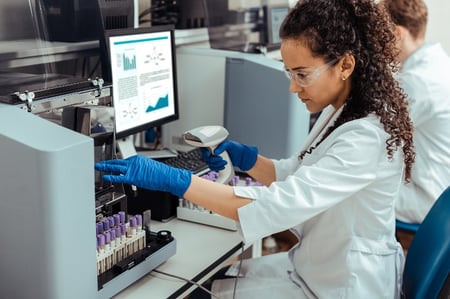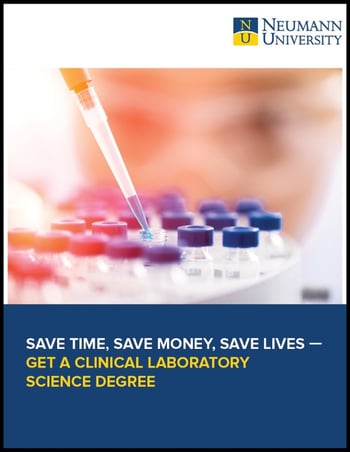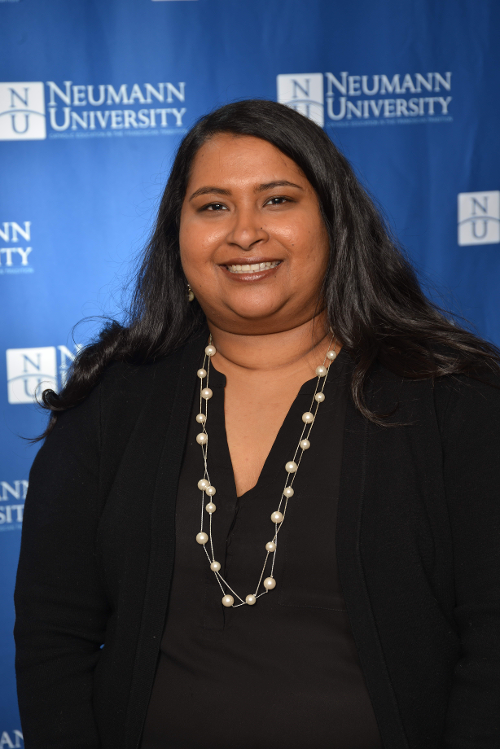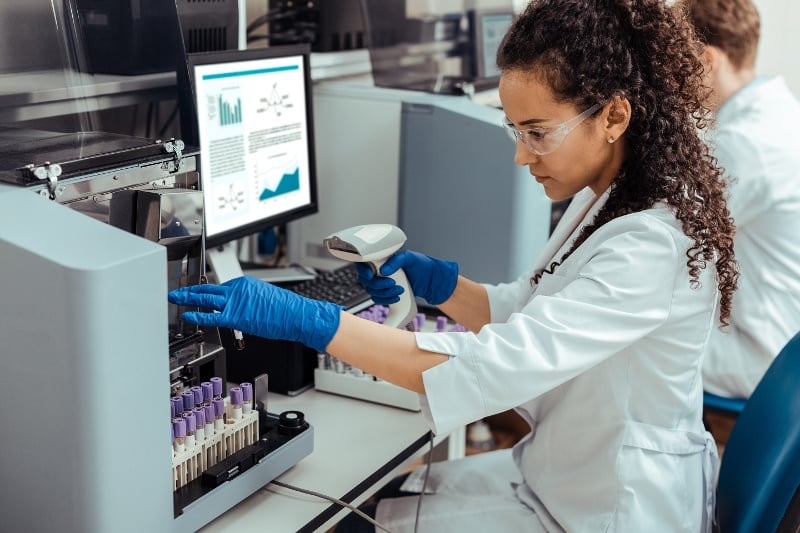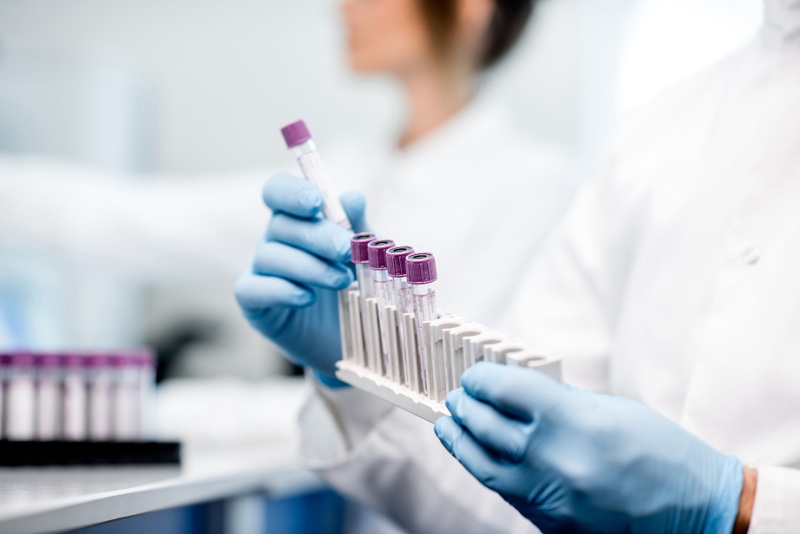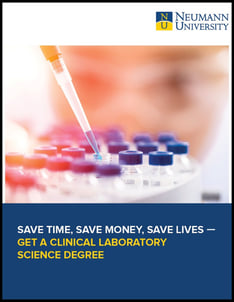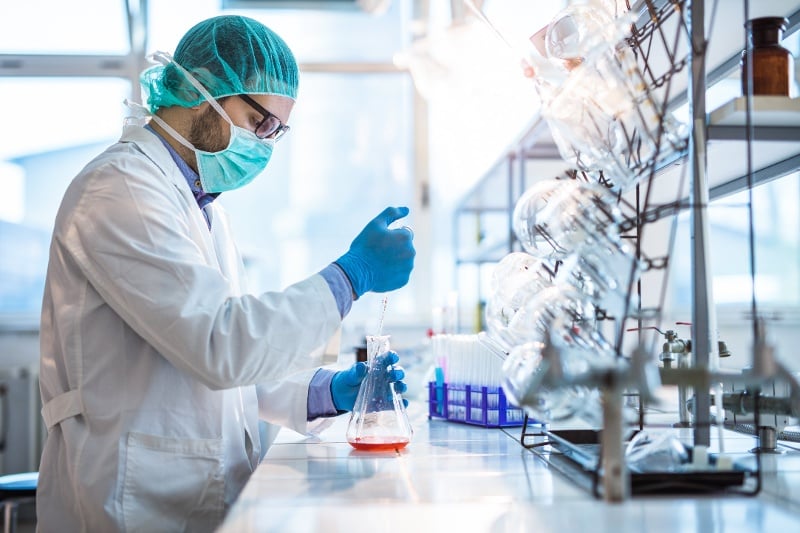
Clinical laboratory scientists function as detectives — investigating, analyzing, and determining the causes of diseases.
They perform routine and complex analyses, and they utilize the latest in biomedical instrumentation and molecular diagnostic techniques.
Still reeling from the affects of the COVID-19 pandemic, skilled clinical laboratory scientists are very much needed in the medical field.
Let's talk about how you can become a clinical laboratory scientist, what to look for in a clinical laboratory science degree program, and ultimately, how getting this degree will prepare you to fill a significant talent gap in the medical field.
What does a clinical laboratory scientist do?
Clinical laboratory scientists perform a variety of laboratory tests, ensure the quality of the test results, explain the significance of laboratory tests, evaluate new methods, and study the effectiveness of laboratory tests.
Examples of laboratory tests performed by clinical laboratory scientists include:
- Detection of the abnormal cells that cause leukemia
- Analysis of cardiac enzyme activity released during a heart attack
- Identification of the type of bacteria causing an infection
- Detection of DNA markers for genetic diseases
How to become a clinical laboratory scientist:
Let's answer the question: how to become a clinical laboratory scientist?
Clinical laboratory scientists are responsible for performing the full range of clinical laboratory tests in areas such as hematology, clinical chemistry, immunohematology, microbiology, serology, immunology, coagulation, and molecular biology.
For this reason, professionals seeking a career in clinical laboratory science generally have a background in chemistry, biology, microbiology, or immunology before going on to obtain a master’s or a post-baccalaureate certificate in clinical laboratory science.
In order to become a clinical laboratory scientist and secure a successful career, there’s ample data that suggests the value of obtaining an advanced degree in this discipline. For instance, the median annual salary for a clinical laboratory scientist is $75,000, according to salary.com, but pay tends to be higher for medical laboratory scientists with a master’s degree. Professionals with a graduate degree are also less likely to be affected by unemployment and layoffs.
What to Look for in a Graduate Clinical Laboratory Science degree Program:
Not all clinical laboratory science programs are created equal, and since this field is so important for the well-being of millions of people across the globe, it is crucial that you choose a program that’s going to equip you with the analytical skills needed to successfully conduct laboratory testing.
You want to look for a clinical laboratory science degree program that...
- Provides students the opportunity to learn in clinical environments
- Places significant emphasis on infection prevention
- Teaches students advanced management techniques
- Prepares graduates to become certified as a Medical Laboratory Scientist
- Offers an efficient, accelerated option for obtaining the degree
- Has an excellent reputation in the educational and laboratory communities
- Documents students’ strong record of professional success
By enrolling in a respected clinical laboratory science program, you will graduate with the sought-after skills needed to save lives.
Why You Should Get a clinical laboratory science degree at Neumann University:
At Neumann University, we are proud to offer a master's degree in clinical laboratory science that is uniquely designed to equip you with the tangible analytical skills needed to investigate and diagnose diseases.
Neumann University has an excellent reputation in the educational and laboratory communities, and our graduates have a strong record of professional success — making our Master of Science in Clinical Laboratory Science a strategic option for future medical experts looking to break into this field.
The program can be completed in two years or less, making it an efficient, accessible, and affordable way to advance your career. The CLS program also adopts a flexible completion format; it is able to be completed in an in-person or hybrid format.
If you are interested in boosting your career with a clinical laboratory science degree, then we encourage you to connect with us:
- Want to learn more? Request more information.
- Looking for resources? Visit our library.
- Interested in joining us for a graduate event? Check out the options and RSVP!
- Have questions? Book a meeting with an admissions counselor.
- Ready to take the plunge? Apply today!
 CHALLENGE
CHALLENGE

